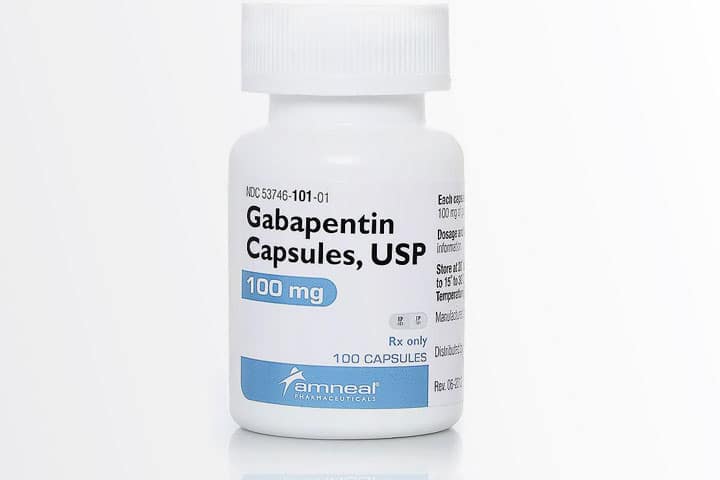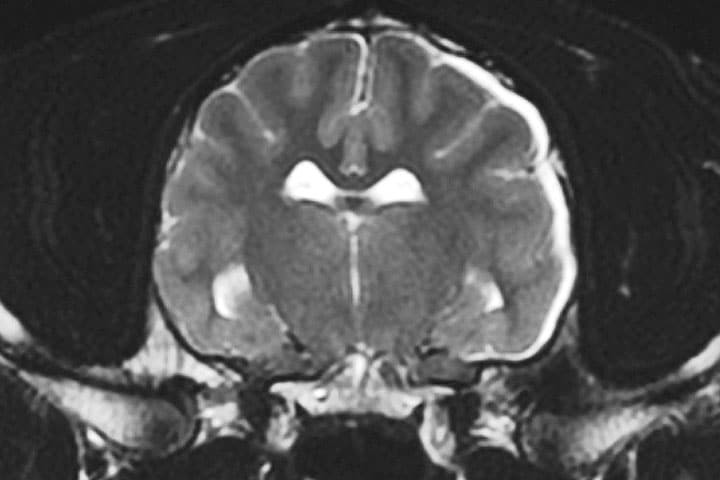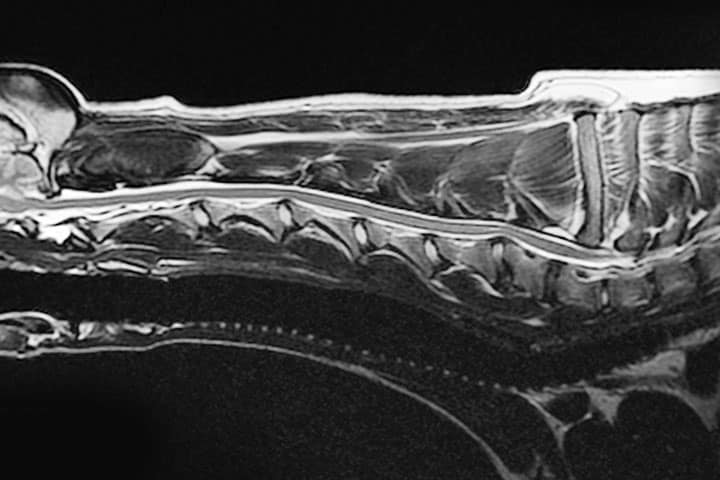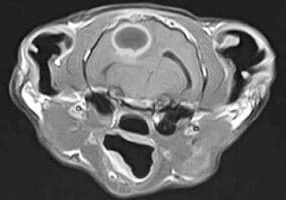
Pain is a frequently occurring problem in many neurology patients and neuropathic pain can sometimes be very difficult to treat.
Neuropathic pain is a complex, chronic form of pain where the nerve fibres themselves may be damaged, dysfunctional, or injured. Damaged nerve fibres may send incorrect signals to the brain which may be perceived as pain although no noxious stimulus is present. Even gentle touch can be experienced as severe pain.
Most vets are familiar with using multimodal analgesia, combining NSAIDs with different opioids but sometimes even this potent combination is not enough, especially in patients with chronic neuropathic pain. In these patients, with neuropathic pain, gabapentin is often one of the first drugs neurologists will reach for.
Gabapentin was specifically designed to mimic the chemical structures of the neurotransmitter γ-aminobutyric acid (GABA), the most common inhibitory neurotransmitter in the brain. Initially it was marketed as an antiepileptic drug but it turned out that gabapentin was even better for treating neuropathic pain.
The principal mechanism of gabapentin’s analgesic properties is inhibition of presynaptic calcium channels in the dorsal horn of the spinal cord, not competitive antagonism as a GABA analogue, which one would presume from the drug’s name.
The elimination half-life for this drug is 3-4 h. in dogs and 2.5-3.5 h. in cats, which unfortunately necessitates a three times a day treatment. Due to the short half-life and its lack of anti-inflammatory properties, gabapentin can safely be given before a potential referral as it will not interfere with our examinations.
Indications for use:
Epilepsy
Gabapentin is usually used as an add-on drug to complement phenobarbital or potassium bromide. It can also be used as the primary therapy for epilepsy patients with liver disease as gabapentin is primarily excreted via the kidneys.
Neuropathic pain
Used mainly to treat nerve root compression, trigeminal neuralgia or chronic intervertebral disc hernias but it is also widely used for dogs suffering from Chiari-like malformation / syringomyelia where gabapentin has become very popular.
Gabapentin has also been used to treat some behavioural changes in dogs and cats such as feline hyperaesthesia syndrome, tail chasing, etc. but here the evidence of the drug’s efficacy is more anecdotal.
A number of studies have looked at the use of gabapentin as an adjunctive painkiller to reduce post-operative pain (after hemilaminectomy, forelimb amputation and mastectomy) but here it has not proved any better than placebo. Hence, it is a drug specifically targeting chronic, neuropathic pain and it does not appear helpful in treating acute, nociceptive pain.
Pregabalin (Lyrica®) is a newer similar molecule to gabapentin with a similar mechanism of action. The syrup formulation is particularly useful for small breed dogs and cats.
Doses:
Dogs 10-20 mg/kg 2-3 times daily (Start with 10 mg/kg TID)
Cats 5-10 mg/kg 2-3 times daily (Start with 5 mg/kg TID)
*Gabapentin is sold under the name Neurontin and is available in 100 mg and 300 mg capsules. A generic form is also available in 300 mg capsules. There is also a solution of gabapentin available with a concentration of 50 mg/mL.
Side effects of gabapentin in dogs and cats are uncommon and the principal side effect seen is mild sedation/lethargy and ataxia of the hind limbs. Increased appetite and mild weight gain have been reported.
If you want to read more about the treatment of neuropathic pain we recommend the excellent article by Sarah A. Moore ‘Managing Neuropathic Pain in Dogs’ published in Frontiers in Veterinary Science 2016.


Case Advice or Arranging a Referral
If you are a veterinary professional and would like to discuss a case with one of our team, or require pre-referral advice about a patient, please call 01883 741449. Alternatively, to refer a case, please use the online referral form
About The Discipline
Neurology

Need case advice or have any questions?
If you have any questions or would like advice on a case please call our dedicated vet line on 01883 741449 and ask to speak to one of our Neurology team.
Advice is freely available, even if the case cannot be referred.
Neurology Team
Our Neurology Team offer a caring, multi-disciplinary approach to all medical and surgical conditions.